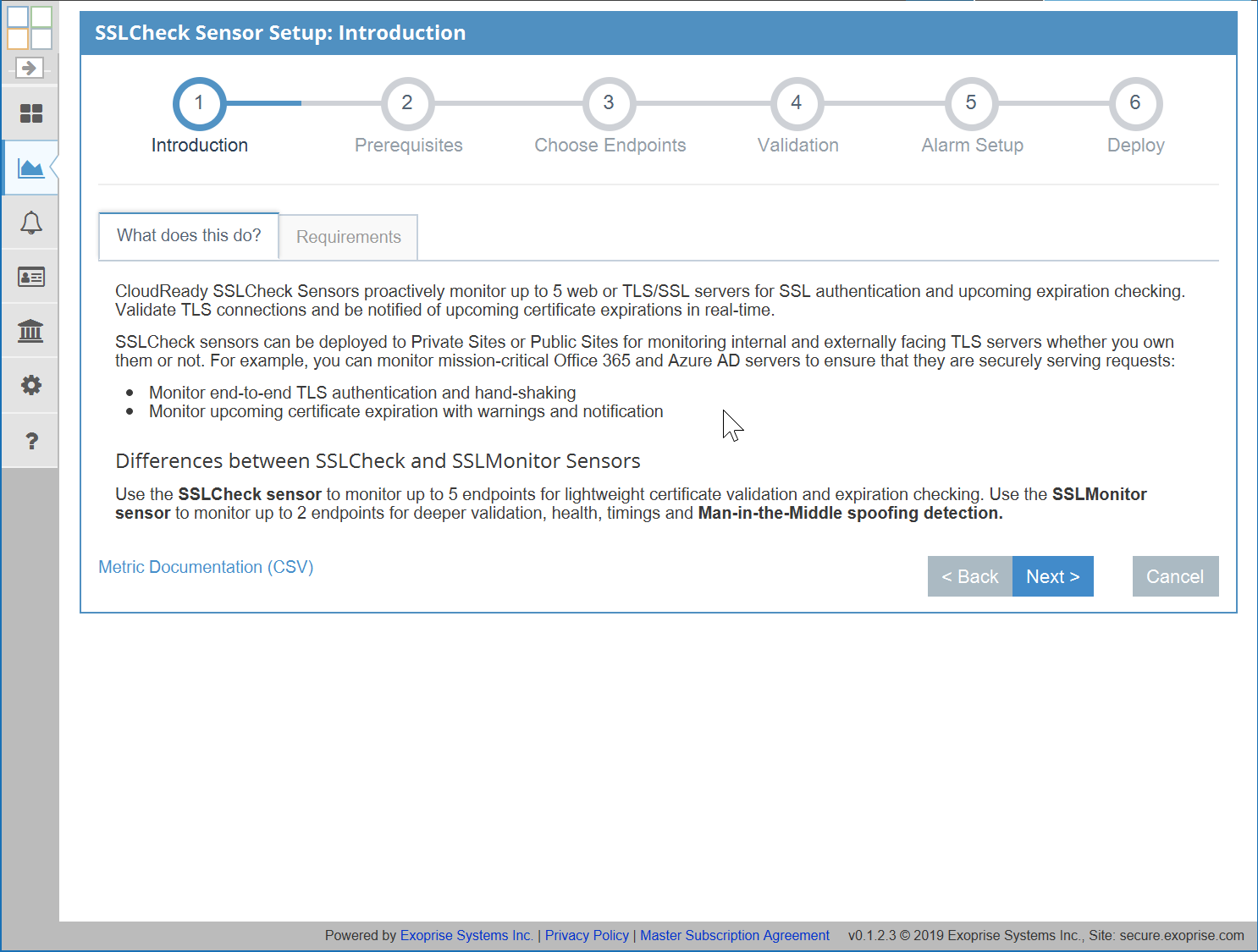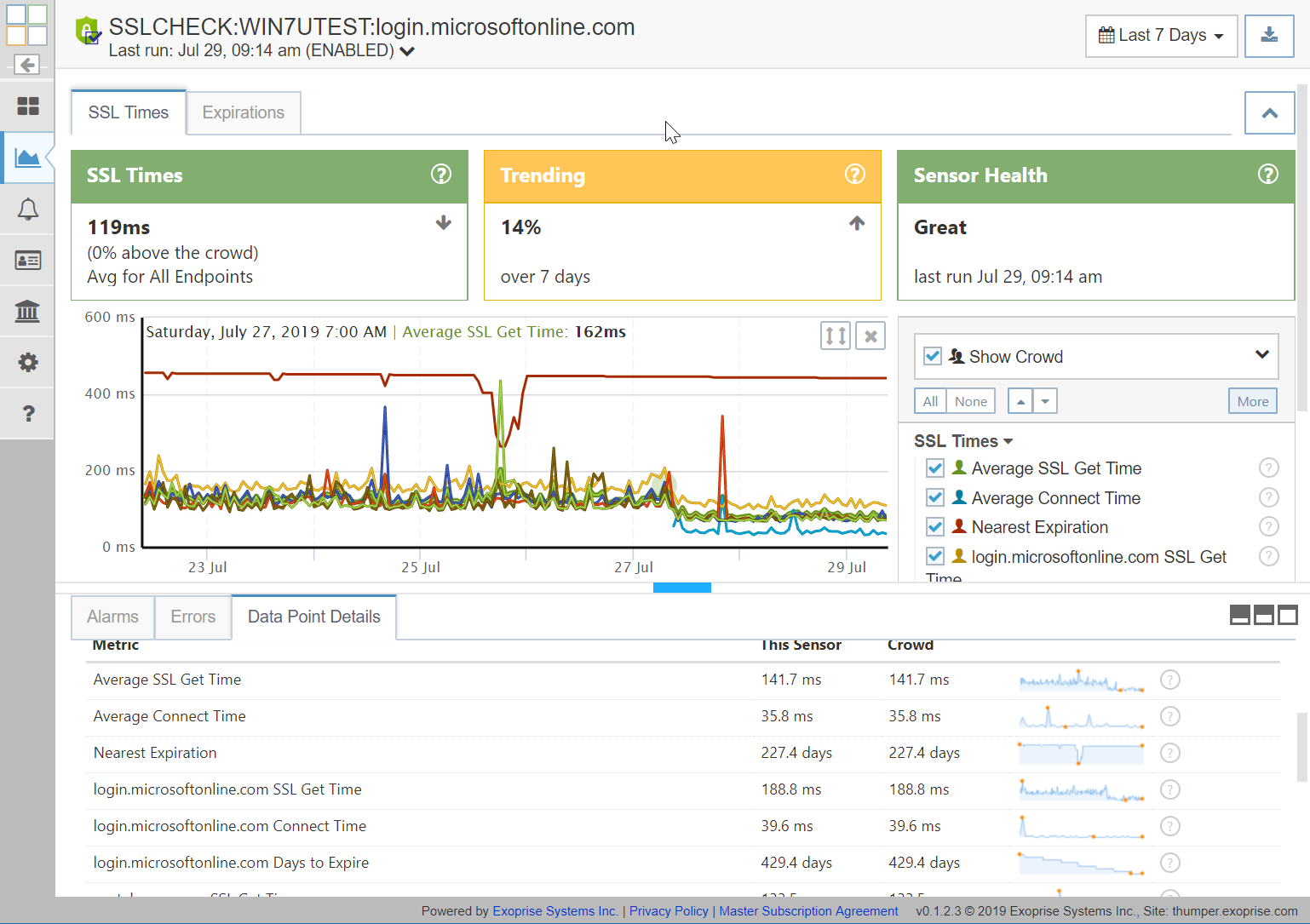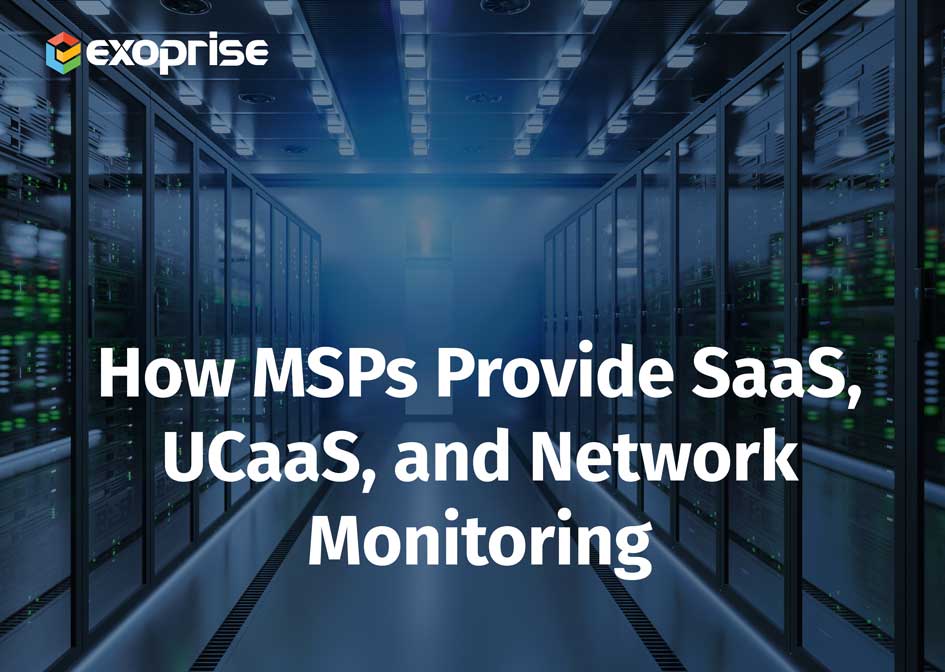With every webpage loaded, email sent, or video streamed, network traffic takes a complex journey…
Hackers busily work night and day to find the tiniest hole in your security perimeter, so they can compromise your systems. Browsers are the most commonly used application on your enterprise network – and one becoming increasingly difficult to secure. Managing their security certificates became more challenging recently, but Exoprise’s easy to deploy SSL certificate monitoring solutions close up any holes.
There is no doubt that your network is constantly under attack.
Cybercrime is a large and growing business. In fact, hackers are expected to inflict damages totaling $8 trillion globally in 2023, and the number is projected to reach $10.5 trillion in 2025.
Editor’s Note: SSL Certificates have become a huge pain to manage now that Google and Firefox (browser owners) ignore certificates that are older than 13 months. Sure, automating certificate infrastructure and deployment is a great idea but NOT feasible in every situation (Azure Bots, we’re looking at you…)
SSL, the Enterprise Security Foundation
To ward off the bad guys, corporations enact multi-layered security, which starts at the browser. Secure Socket Layers (SSL) certificates, which have been available since 1993, check to make sure that an encrypted link is established between a browser and a data server. In that way, an intruder cannot read information as it makes its way from source to destination.
Like all technology, SSL evolved and improved through the years. Frankly, the first few versions were not very good, so an alternative dubbed Transport Layer Security (TLS) emerged in 2008. It gained widespread acceptance, so just about all browsers use it – even though they call it SSL rather than TLS.
The certificates are a common first line of defense for many applications:
- Internal apps
- 3rd party hosted applications, such as mortgage applications and other industry-specific solutions
- Cloud provider certificates, for example the many various certificates that are used with Microsoft Office 365, Salesforce, or others.
A challenge is certificate management’s increasingly dynamic nature. The encryption keys that are sent to servers to create secure connections are periodically updated. Initially, that process was done every three or four years. With attacks becoming more common and more successful, browser vendors changed the rules, so in a growing number of cases, vendors, like Google, require annual updates.
Companies Lack SSL Visibility
Many businesses operate blind and have no tools to track certificate expirations. Consequently, the onus is on users to understand the process and then make the necessary adjustments. Big mistake. Humans are the weak link in every company’s security chain, so not surprisingly problems arise.
- Busy employees do not pay attention to expiration notifications
- Reminders go to the wrong email box
- Certification renewals are missed
The company networks and applications then become vulnerable to attack in a few ways. Occasionally, the user is prohibited from accessing the website. No one wants to be the person explaining to the CEO why they couldn’t access an important application in the middle of a Wall Street analyst presentation. Such issues can arise late at night, on weekends, and holidays when employees may have trouble contacting the company Help Desk.
In other cases, the user gets a message telling them that their certificate is out of date, their transmission is unsafe (unencrypted), and asking if they still want to proceed to their destination. Given how busy everyone is nowadays, they typically say, “Yes”, without thinking of the consequences. Since the information is now vulnerable, hackers can freely pick off confidential company or personal data. More importantly, the end-user has now grown accustomed to ignoring certificate warnings.
Certificate Monitoring’s Many Benefits
Corporations would rather not have their fate resting on how knowledgeable and diligent employees are in keeping their system software up to date. They need to be proactive rather than reactive. Therefore, system administrators require a solution that automates certificate monitoring. Exoprise offers two such products: SSLCheck and SSLMonitor

The products ensure that the security shortcomings that come with having outdated certifications never arise. The tools monitor certificate status. Since individuals are very busy nowadays and do not understand the importance of updating SSL, the system sends them reminders before a certificate expires.
System administrators have long To-Do lists. Monitoring certificates for hundreds, thousands, or more users would chew up a great deal of time, leaving them less time to perform more important tasks, such as identifying anomalies in user interactions that often illustrate a hacker trying to break into the system. The Exoprise SSL solutions simplify the process.
SSLCheck
SSLCheck, which monitors up to 5 endpoints, is a lightweight certificate validation and expiration checking sensor. The solution examines your current users’ security health. It proactively monitors network connections to ensure that TLS/SSL authentication always occurs. The tool validates each connection’s browser security profile:
SSLCheck sensors can be deployed to private sites or public sites and monitor internal and externally facing TLS servers whether you own them or not. For example, you can monitor mission-critical Office 365 and Azure AD servers to ensure that they are securely serving requests:
- Monitor end-to-end TLS authentication and hand-shaking
- Monitor upcoming certificate expiration with warnings and notification

SSLMonitor
This solution adds a few bells and whistles. SSLMonitor inspects certificates and searches for vulnerabilities. The product proactively examines up to 2 web connections. It tests and examines browser handshakes and certificates from multiple vantage points, behind your firewall wherever you deploy certificate monitoring and from the Exoprise farm of servers. The tool digs deeper into certification health, and examines metrics, like timings. The software is on the lookout for Man-in-the-Middle spoofing and keeps the enterprise network safe.
- Examines end-to-end hand-shaking and authentication processes.
- Continuously looks for server cipher changes and attestation
- Generates alerts for any certificate, intermediate, and chain changes
- Monitors upcoming certificate expirations
- Creates warnings and notifications when a certificate is about to expire
Browsing is an integral part of users’ online experience. Enterprise security starts with ensuring that such interactions are not open to intrusion. Certificates are the foundation upon which such security is built. Companies face challenges in managing encryption certificates because they need to be updated periodically. Administrators need a management solution that is easy to use. Exoprise offers two solutions, and ideally, one fits your business needs.


